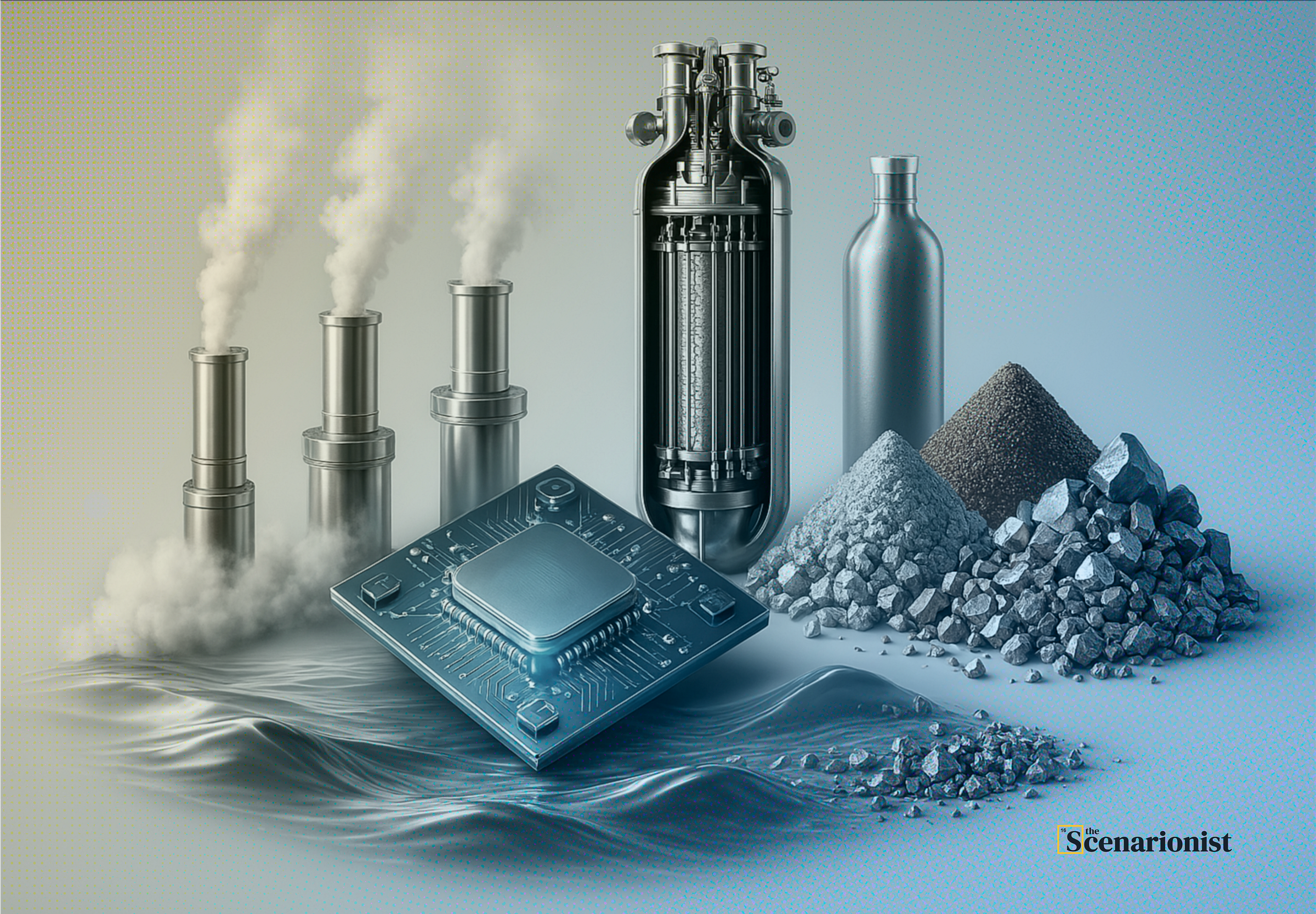☢️ Molten Salt Reactor SPAC; 💨 $33M Carbon Offtakes Inked; ⚛️ PsiQuantum’s $6BValuation Ambition; 🌋 Geothermal Tech Gets DoD Boost; 🥬 Vertical Ag Files Ch.11 & more| Deep Tech Briefing #54
Weekly Intelligence on Deep Tech Startups and Venture Capital.
Thanks for reading Deep Tech Briefing, our weekly intelligence on deep tech startups and venture capital. If you like what you see, I encourage you to subscribe to all our pieces here.
Before Go Ahead:
Deep Tech Briefing is just one part of The Scenarionist experience. To enjoy the full experience, become a Premium Member!
The Scenarionist Premium is designed to make you a better Deep Tech Founder, Investor, and Operator. Premium members gain exclusive access to unique insights, analysis, and Venture Guides with the wisdom of the world’s leading Deep Tech thought leaders. Invest in yourself, and upgrade today!
Dear Friends,
This week, a bold bet on next-gen nuclear hit the public markets—signaling that advanced energy is no longer just a science project. With molten salt reactors moving toward commercialization, the contours of tomorrow’s energy grid are starting to take shape: modular, distributed, and increasingly built for industrial resilience.
It’s a moment that encapsulates a broader trend across deep tech: hardware is back. From fusion pilots to photonic quantum architectures, from UAV platforms to zero-carbon concrete, the headlines are converging on a single idea—infrastructure innovation is the new software. But this time, success isn’t measured by user growth. It’s about who can manufacture, deploy, and monetize at scale.
Vertical farming, once the darling of climate tech VCs, hit a hard reset this week with another high-profile bankruptcy. It’s a reminder that biological timelines don’t obey software valuations. Execution in deep tech means bridging engineering with economics—and not every sector is ready.
But there’s real momentum, too. Geothermal is gaining traction as a resilient energy option with growing institutional support. Modular fusion pilots are starting to lay steel. Enterprise AI is entering a new phase—less focused on flashy demos, more on explainability, integration, and domain-specific impact. Even cultivated meat, navigating regulatory and political headwinds, is adapting through hybrid approaches and capital-efficient strategies.
In parallel, the lab-to-market pipeline is delivering. We’re seeing advances in carbon-negative construction materials, real-time quantum simulation, scalable terahertz systems, and copper-free superconductors—each with the potential to redefine performance benchmarks across industries.
While investor expectations are evolving, the appetite for big ideas remains strong—especially when paired with grounded plans, measurable progress, and a clear route to market. From critical energy systems to orbital infrastructure, from AI-native enterprise tooling to next-gen materials, this week’s Briefing captures the shape of deep tech as it moves from frontier science to industrial reality.
Enjoy the read!
✨ For more, see Membership | Venture Guides | Insights | Deep Tech Catalyst
In Today’s Briefing
The Big Idea – A molten salt nuclear reactor enters public markets via SPAC, signaling a bold industrial bet on Gen IV nuclear.
The Key Updates – A leading vertical farming startup declares bankruptcy, revealing hard truths about ag-tech economics. A U.S.-German fusion venture selects a legacy nuclear site for its €7B pilot plant. UAV manufacturing decentralizes through hydrogen-focused partnerships, while Claude enters the enterprise AI stack through Databricks. Meanwhile, geothermal gains military backing, and cultivated meat companies pivot under mounting financial and political pressure and more...
Breakthroughs and Discoveries – A Chinese microsatellite enables long-distance quantum encryption, while graphene-based THz modulators promise real-time beam shaping. A mollusk-inspired concrete process captures CO₂ while generating green building material. Quantum algorithms unlock real-time material simulation, and a copper-free superconducting oxide breaks records under ambient pressure.
Deep Tech Power Plays – U.S. regulators weigh domestic deep-sea mining to secure battery metals. The EU drafts a unified robotics strategy to retain its industrial edge. And the UK commits £400M to defense innovation.
Interesting Reading:
A few thought-provoking reads from this week — stories that stretch across geopolitics, climate capital, and next-gen manufacturing. Take your time with them. They’re worth it.
Can Geothermal Energy Meet the Moment? – Geothermal was once the forgotten cousin in the clean energy family. That may be changing. E&E News.
Chinese Military Companies Permeate US Tech Supply Chain – A sobering look at how deeply entangled U.S. innovation is with strategic Chinese firms. Bloomberg.
Climate VCs and Startups Are Chasing the Defense Tech Trend – When clean tech meets defense, new funding flows — and tough questions follow. Sifted.
India Is Hoping Its Manufacturing Sector Will Profit From Trump's Tariffs on China – Industrial strategy is back in fashion — and India wants a bigger piece of the pie. NPR.
Toyota’s ‘Circular Factory’ Idea Could Be a Great Alternative to Junk Yards – A radical rethink of automotive waste — and what happens after your car’s last ride. The Drive.
Policy Uncertainty: The Invisible Handbrake on Climate Investment – The biggest obstacle to climate investment might not be capital. It’s clarity. Forbes.
Changing Funding Rules Would Be ‘Rocket Fuel’ for Tech Start-Ups – UK founders make the case for unlocking a new wave of entrepreneurial energy. The Times.
The Big Idea:
Molten Salt Nuclear Reactor Goes Public via SPAC: Terrestrial Energy Bets on a Gen IV Nuclear Future
Among the many signals that the global energy landscape is shifting in fundamental ways, one stood out this week: Terrestrial Energy, a U.S.-based advanced nuclear startup, announced plans to go public through a SPAC merger with HCM II Acquisition Corp., raising approximately $280 million and targeting a post-deal valuation of around $1 billion. It’s not the first SMR (small modular reactor) player to take this route — Oklo did something similar in 2024 — but Terrestrial brings something different to the table:



